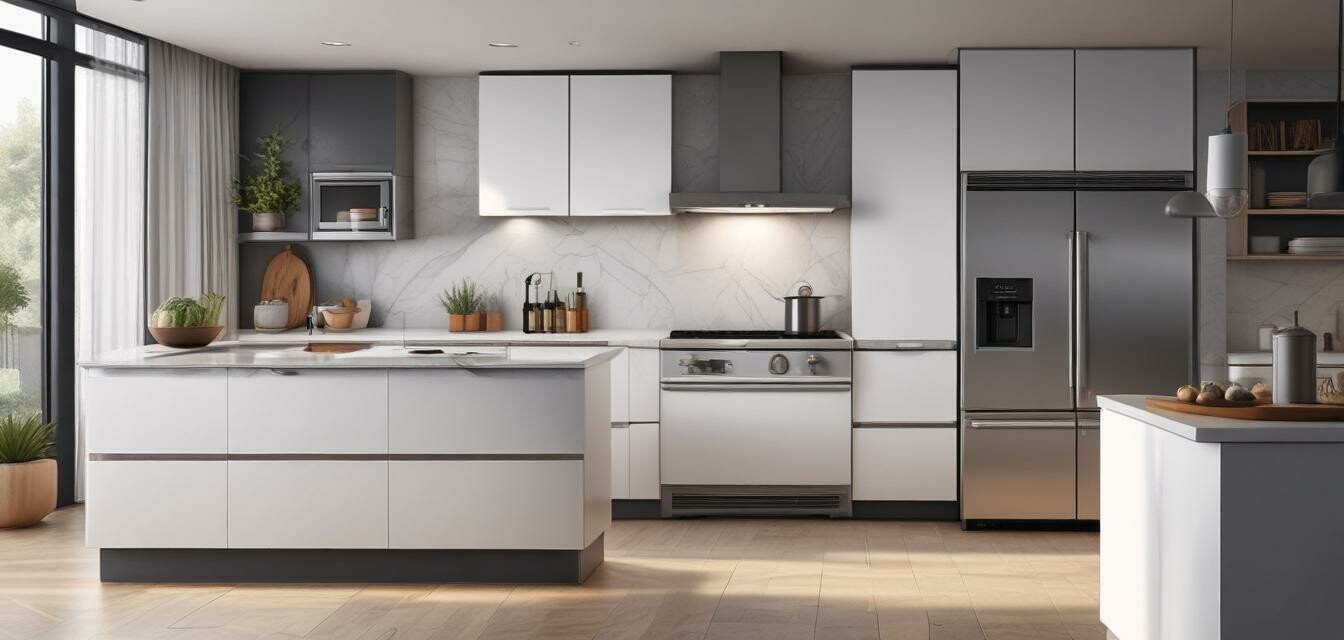
The best ways to reduce food waste with smart appliances
Key Takeaways
- Smart appliances can help track food inventory and expiration dates.
- Meal planning and smart shopping apps make it easier to reduce waste.
- Efficient food storage technologies can prolong shelf life.
- Smart cooking appliances minimize overcooking and leftovers.
- Touchless faucets and other smart kitchen devices promote hygiene.
In today's kitchen, technology plays a pivotal role in reducing food waste. With smart appliances, you can significantly enhance meal planning and organization, leading to more efficient food usage. This article will explore the best ways to leverage these advanced devices to minimize waste in your home.
1. Inventory management with smart refrigerators
Smart refrigerators come equipped with features that can revolutionize how you manage food items. Here’s how they help:
- Inventory tracking: Many models have built-in cameras that allow you to see content remotely, helping prevent overbuying.
- Expiration alerts: Alerts notify you of items nearing their expiration date, prompting timely use.
- Shopping lists: Smart refrigerators can integrate with apps to maintain grocery lists, ensuring you only buy what you need.
Example of a smart refrigerator
Consider using a smart refrigerator that not only keeps food cold but also keeps you informed about what’s inside it. This capability encourages you to use ingredients before they go bad.
2. Meal planning tools
Planning meals in advance can dramatically reduce food waste. Smart appliances often sync with apps that offer meal planning features:
- Recipe suggestions: Apps can recommend recipes based on what you already have, promoting resourcefulness.
- Controlled portions: With portion control settings, you can avoid cooking too much, reducing the chances of leftovers.
- Shopping integration: Automatically generate grocery lists based on meal plans to avoid double buying items.
Planning tips
When planning your meals, try to incorporate meals that share similar ingredients to minimize leftover food.
3. Efficient cooking techniques
Smart cooking devices like smart ovens and induction cooktops make it easier to cook food efficiently:
- Precise cooking: Smart appliances often allow you to set precise temperatures and cooking times, avoiding overcooked food.
- Adaptive cooking: Some smart ovens can adjust cooking times based on real-time monitoring for optimal results.
Food storage advantages
Smart appliances not only cook but also help you store food appropriately, extending its shelf life significantly:
- Vacuum sealing: Certain devices seal food in vacuum bags to prevent spoilage.
- Controlled temperature zones: Specific zones in smart refrigerators maintain optimal conditions for different food types.
4. Using the Internet of Things (IoT) in the kitchen
The Internet of Things is transforming kitchen efficiency. IoT-enabled devices allow seamless interaction for maximum food preservation:
- Smart sensors: Devices can monitor freshness and alert you if food is spoiled or near expiration.
- Cross-device communication: Appliances can share information, such as expiration dates and cooking schedules, to create a cohesive kitchen ecosystem.
| Smart Appliance | Key Features | Benefits for Reducing Waste |
|---|---|---|
| Smart Refrigerator | Inventory tracking, expiration alerts, shopping lists | Prevents spoilage by keeping users informed about food items |
| Smart Oven | Adaptive cooking, precise temperature controls | Avoids overcooking and ensures optimal cooking results |
| Touchless Faucet | Motion-sensor technology | Promotes hygiene, ensuring less contamination of leftovers |
5. Sustainability and eco-friendliness
Utilizing smart appliances isn't just good for your kitchen; it's also beneficial for the environment:
- Energy-efficient models: Many smart devices are designed to use less energy, reducing overall costs and environmental impact.
- Less food waste: By extending food life and preventing spoilage, you contribute to a more sustainable food system.
Pros
- Enhanced food management and tracking.
- Reduced chances of spoilage through technology.
- Environmentally friendly practices.
Cons
- Initial investment can be high for certain devices.
- Dependency on technology may lead to issues if devices malfunction.
Conclusion
By embracing smart appliances, you are taking significant steps towards reducing food waste in your kitchen. These devices not only enhance efficiency in meal preparation but also create a more sustainable lifestyle. For further insights on how to maximize your kitchen's potential, explore more tips in our Smart Kitchen Tips category. Embrace technology, and your kitchen will not only become smarter but also far more resourceful.